The Great British Bake Off finalist is launching a mental health zine. She met with Happiful to talk anxiety, body positivity and being true to herself
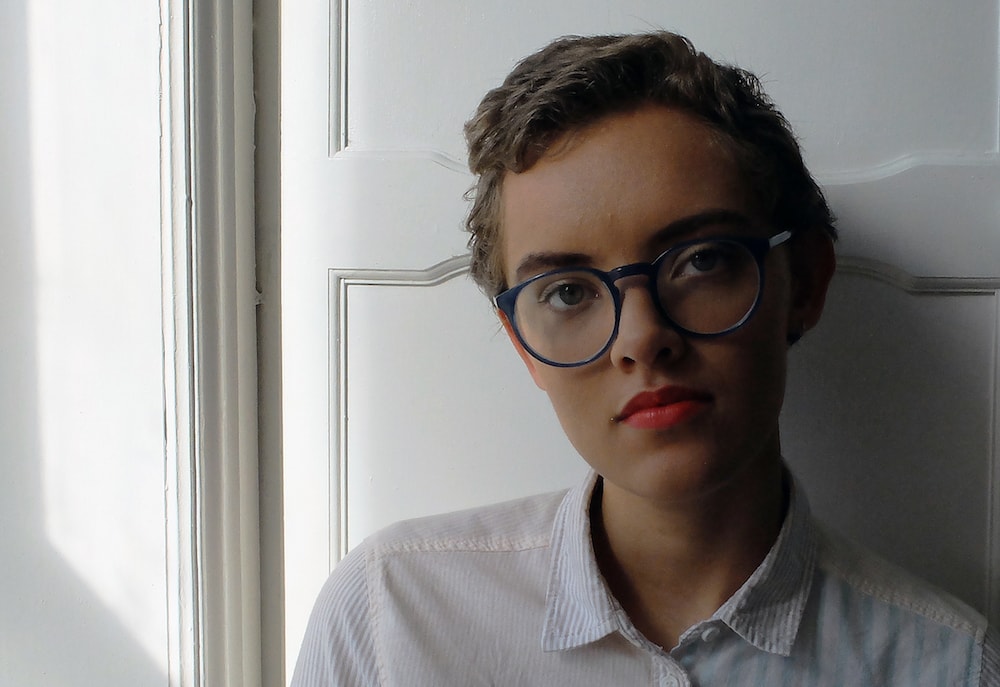
Photography | Leah Pritchard
From 16, I had bulimia and anorexia.
I had a five or six-year period of bulimia and anorexia in my teens. It changed as I got older, but it was very much linked to my anxiety and depression. It was a maladaptive processing mechanism. I was very nervous talking to people and a big part of me thought I didn’t deserve to come forward and speak about it. I thought I should just suck it up and deal with it. You end up feeling you need to be very, very thin before you’re deserving of care. That’s not helped by the fact that BMI is a criteria for care within the NHS, which is a difficult thing to navigate. It was only at the age of 22 that I started to read other people’s stories, which gave me the confidence to seek help and go to counselling.
I’m happy I went to counselling.
Both me and Leah, my partner, have gone to counselling in the last year because we have been able to talk in depth with one another. It really encouraged us and pushed us forward, and if I hadn’t had Leah, my temptation would have been to not say anything. I’m so happy I did go to counselling because it was a really important and helpful resource. Once I came forward, people were very supportive. If I'd had the nerve to open up a bit earlier I would have been able to access that support earlier, too. It’s funny how we internalise that stigma and just assume that everyone else will be as judgemental as we are of ourselves.
My Great British Bake Off experience was sometimes difficult.
I had more attention on me than I had ever had, but in a sense, I was too busy to sink into being ill like I would have done in the past. I was very busy so my mental health was channelled into stress and anxiety. It was very strange. At public events, there was a temptation to come across as THE most together person in the world, and I was very anxious about that. I was thinking, 'Do I have to make an excuse? Do I have to feign a physical illness to cover my mental illness?' But it can be tough to navigate and justify your mental health by pretending you’ve got a cold or something.
My coping mechanisms are very poor.
There is no public or private divide with me. That’s my problem. I am incapable of playing the polite public face. Maybe I should have done that! But it’s a good thing in a way because I reached a point where I had enough confidence in myself that I was happy, more or less, to be myself and hope that people liked me.
Shaving off my hair was liberating.
I’ve got rid of the thing that was a big marker of what I was. In the past, a huge part of my anxiety was about the way I looked. If I was stressed out, I would have an extreme reaction against being seen. It was a real visceral thing when people were looking at my face or my body, and it would make me sick with nerves. So, I cut my hair off. I didn’t have this big mop to hide behind any more.
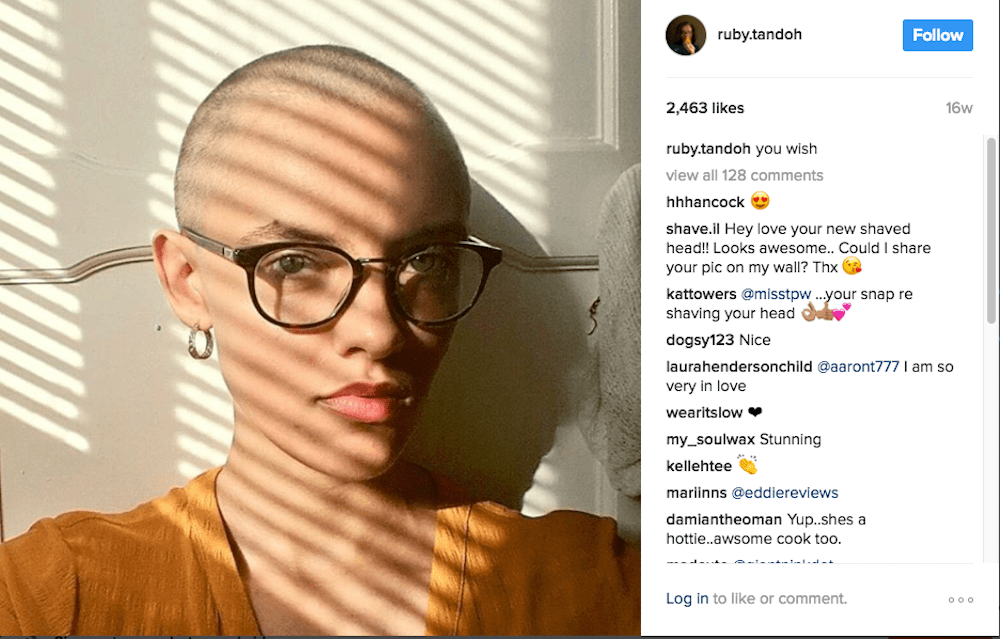
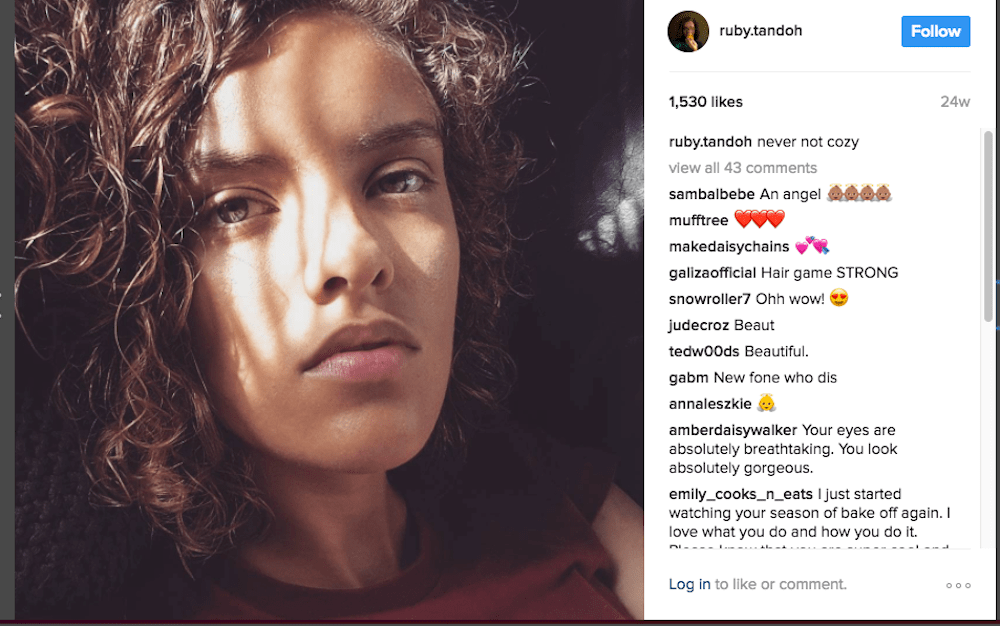
Photography | © Instagram / Ruby Tandoh @ruby.tandoh
For me, it was a brave thing to do. I no longer had a safety blanket. I feel that if you’re going to exist in this world you have to face the fact that people are going to see you, and therefore you should develop ways to cope with that kind of stress. I felt very liberated. It meant I could go forward feeling confident in knowing that whatever bad haircut I have, or bad hair day, it’s not the end of the world.
LGBT movie characters need to improve.
It’s very disheartening not to see your own life experiences mirrored in films and TV shows. Quite often, the portrayal of LGBT characters is less than sympathetic – it’s that so-called ‘craziness’ in LGBT characters. Gay and lesbian or bisexual characters are still a kind of shorthand for being psychopathic or insane in the movies. It’s a really common trope and it doesn’t surprise me that films play into how people feel. For example, those awful Disney villains seem to be coded as queer men, like Jafar in Aladdin. They’re synonymous with weirdness and nastiness.
When I cut my hair off, I didn’t have this big mop to hide behind anymore. I felt very liberated
Food should never be linked to guilt.
There’s more choice, more availability, and more options to nourish yourself than ever before. It’s such an exciting time for food, it’s wonderful. And, yet, food is still often reduced to a moral issue. We use terms like ‘clean eating’ or ‘guilty pleasure’ or ‘being naughty’ by having a piece of chocolate. When you give food that kind of morality, then you’re giving it a characteristic that it just shouldn’t have. That’s dangerous. It makes people think what they eat is a reflection of who they are, which, of course, it’s not.
I’m so happy I went to counselling because it’s a really important resource. Once I came forward, people were very supportive
Instagram can make me anxious.
When I research articles about wellness and clean eating, and I look on Instagram, it doesn’t take long before I start to feel anxious. I would love to say that real life doesn’t look like this, but it’s really difficult. The most important thing is that your real life, with your friends, your family, and the people you surround yourself with on social media, are people who enjoy food, who like their bodies, or who are willing to help you like yours.
I don’t do Twitter these days.
I’m a bit more anchored in my life. When I was most active on social media it tended to be when I was most dormant in real life. But now I’m working on projects and trying not to get into too many fights! I can easily take the bait; I’m a sucker for them.
Body positivity is a tricky subject.
People will talk about body positivity and post lots of inspirational quotes about it, and then in the next post they will talk about losing 10lbs in three days. You’ve got to look at it with a degree of scepticism. My advice is to make sure that if you’re following body positivity social accounts that are advocating health at any size, rather than what healthy is apparently meant to be, which is slim and white.
Queerness should be playful.
The narratives around queerness can be really fatalistic and awful, but I like the idea of trying to find some fun in it, and surrounding myself with other people who enjoy everything that it means to be queer, and not holding to some unrealistic expectation or putting yourselves in a box, either one imposed by you, or from within the queer community. You can be a butch lesbian and still wear a dress and heels. You can do what you want. Have fun with your own sexuality and appearance.
Bisexual women like myself are forced to justify themselves.
There’s this damaging idea that if you like men or have ever liked men, or been with men, then you are used goods, and not as desirable or legitimate in your sexuality, which is obviously ridiculous. It’s a dangerous stereotype in our community. You have to find likeminded people, and the web has helped me with that. I’ve met loads of bisexual women who refuse to apologise for it, and who refuse to box themselves in.
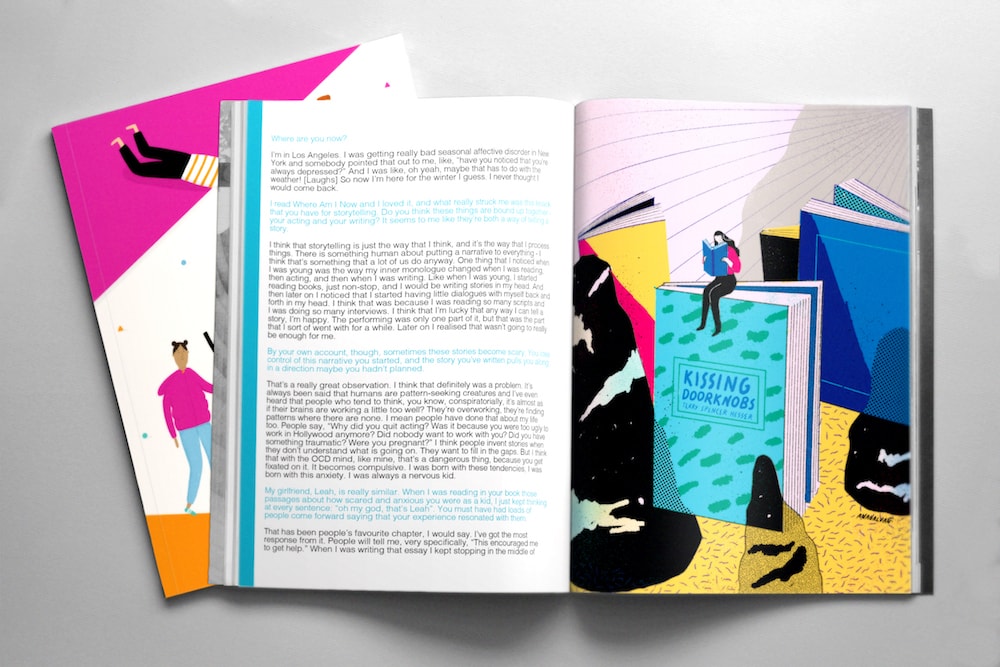
We've created a mental health magazine.
It’s a one-off zine called Do What You Want. Leah and I are running the London Marathon this year. I’m running for Beat and she’s running for MIND. We began thinking of other ideas where we could help. We thought, why not do a zine for mental health? We want the magazine to be accessible and have a good cross section of stories. A lot of our friends are writers, so we have a natural base, but then doing something for charity also gives you an uncharacteristic confidence that I don’t think I usually have! The aim is to give people an opportunity to read and talk about issues.
Do What You Want will be published at the end of April

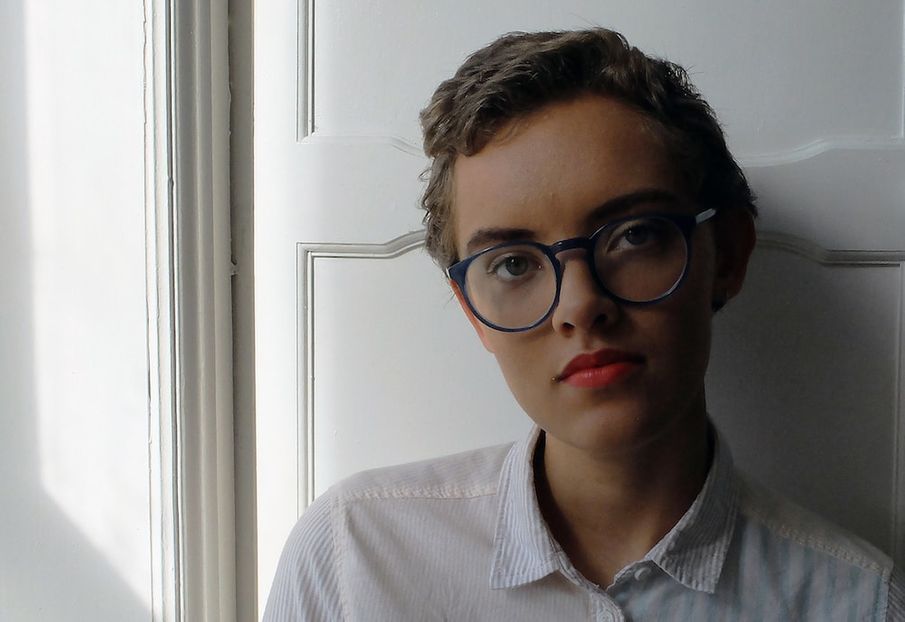
Comments